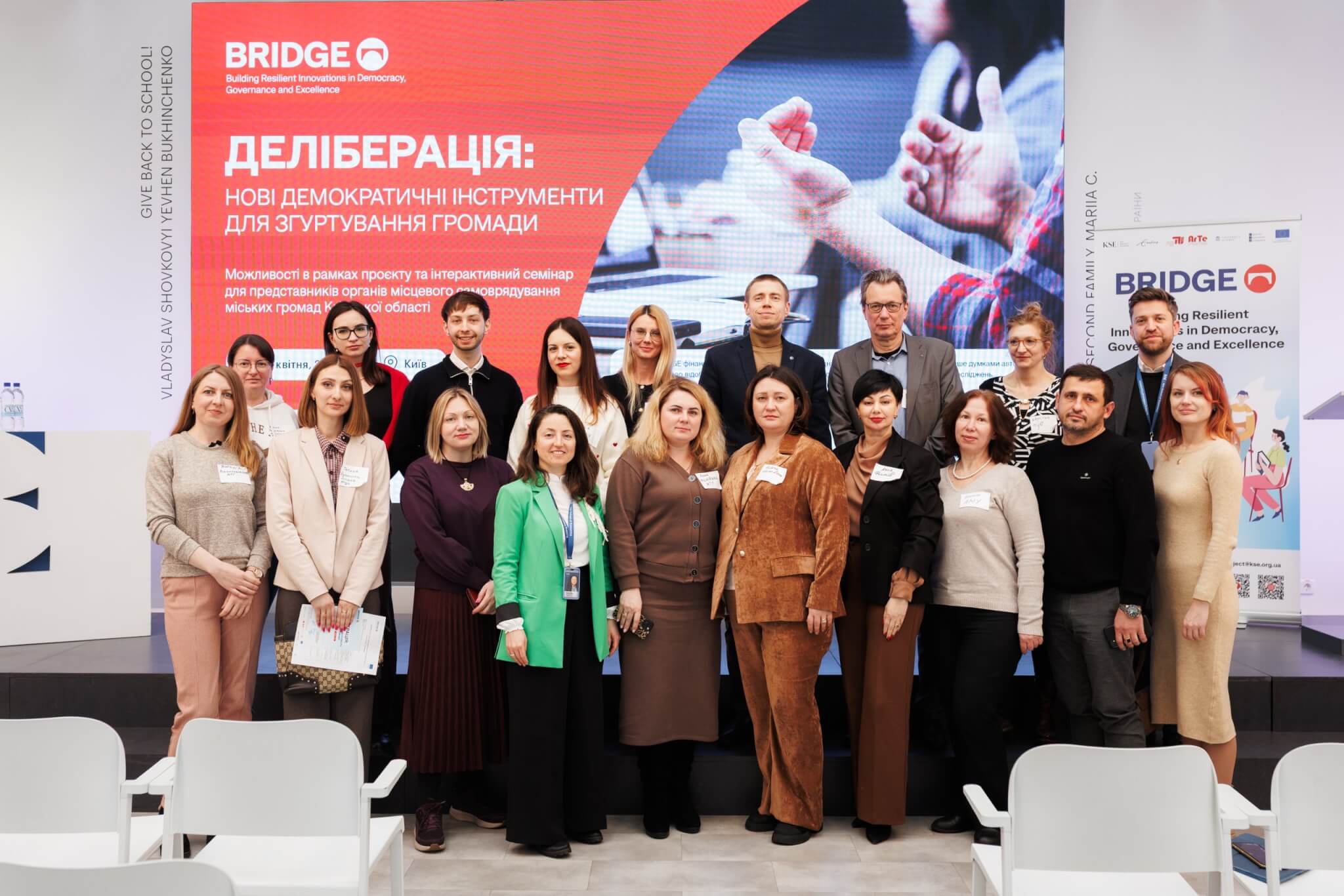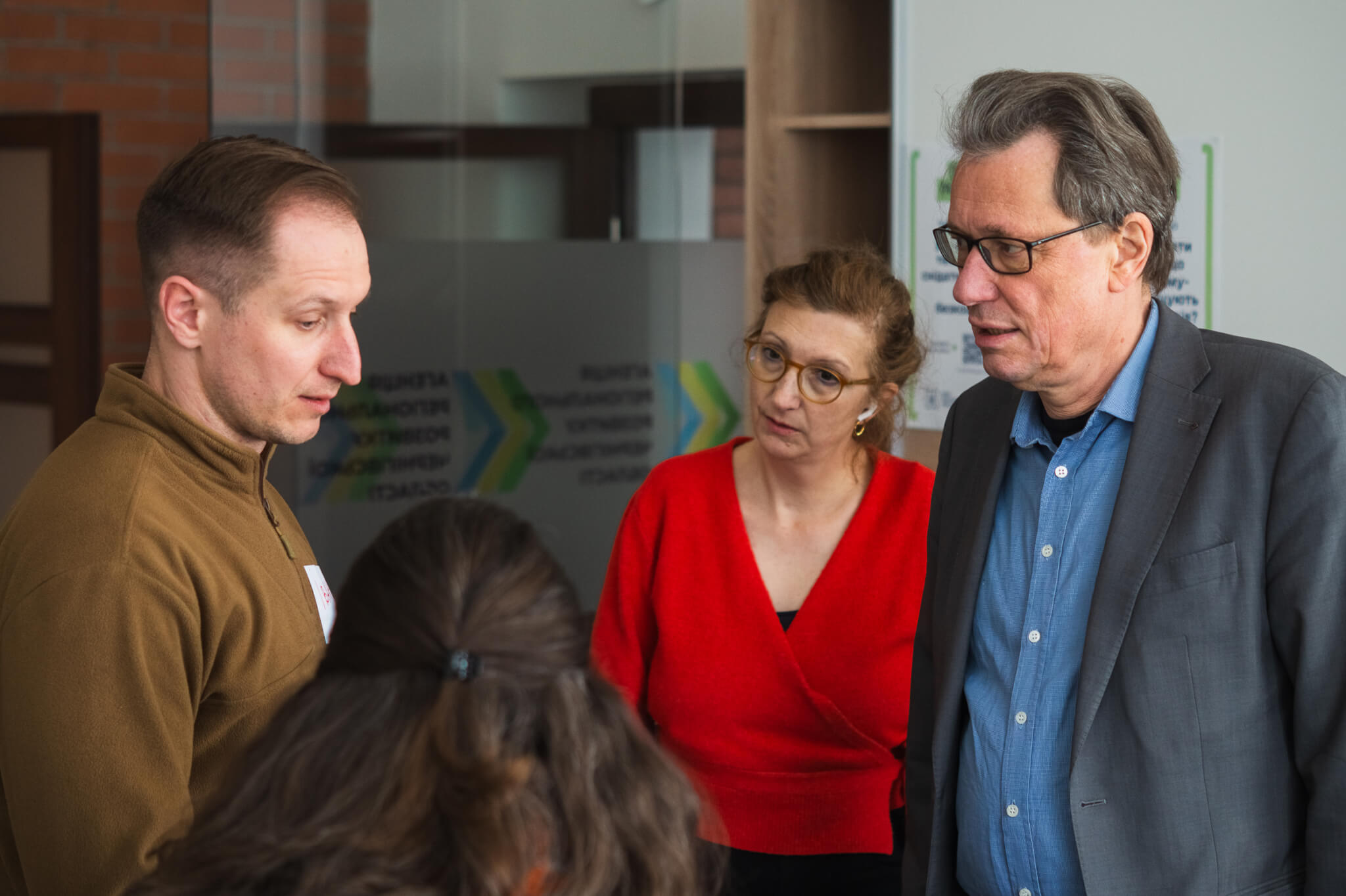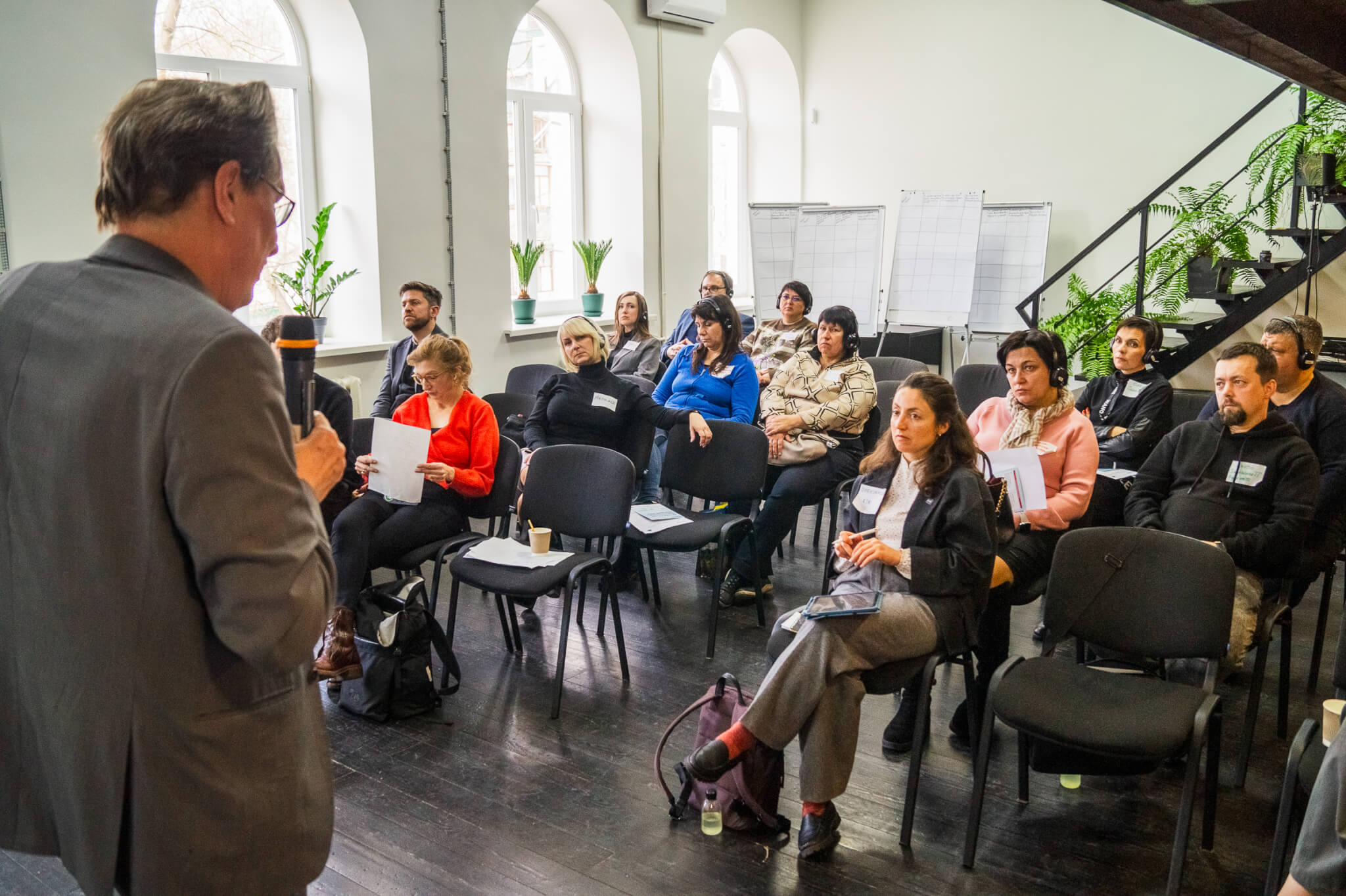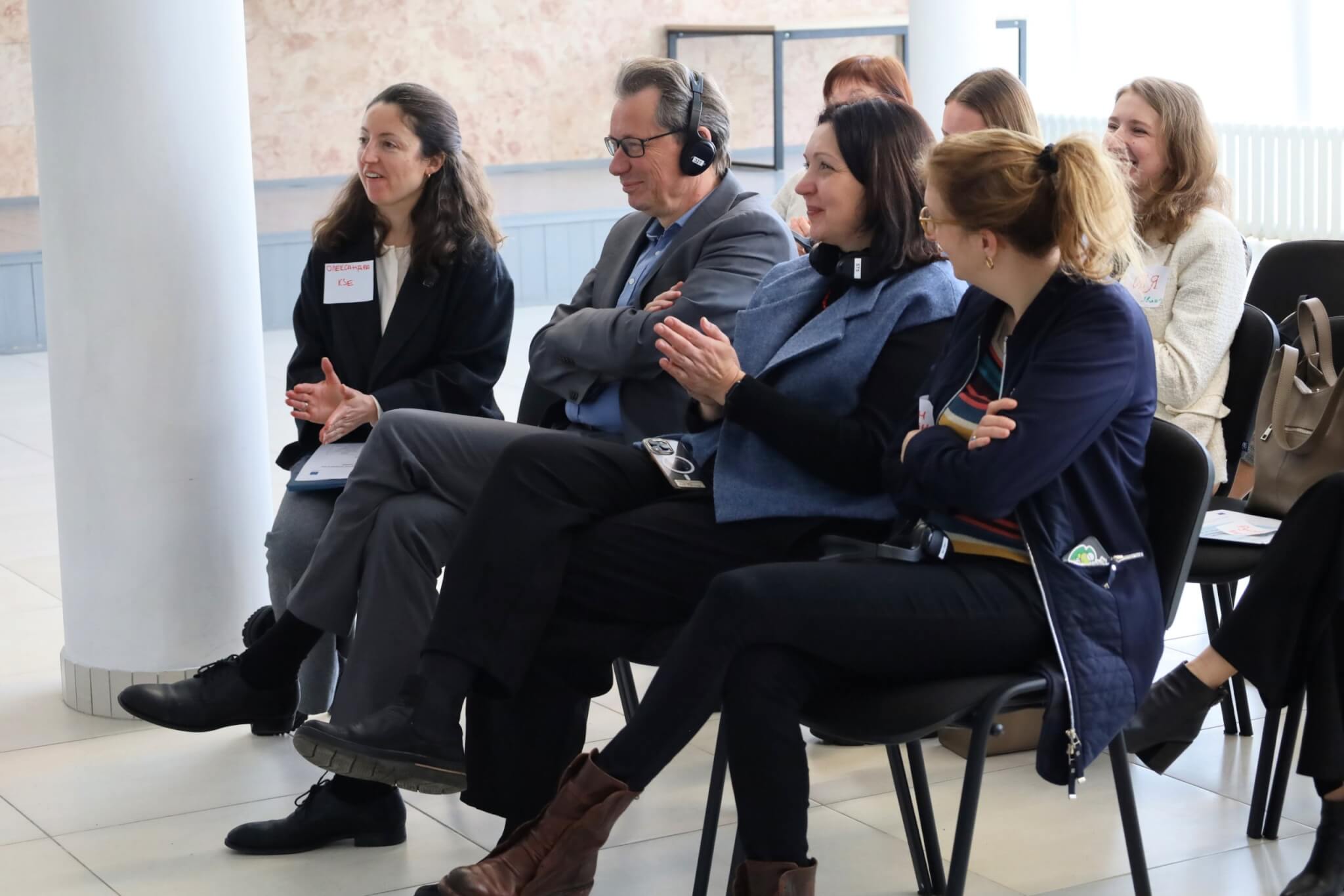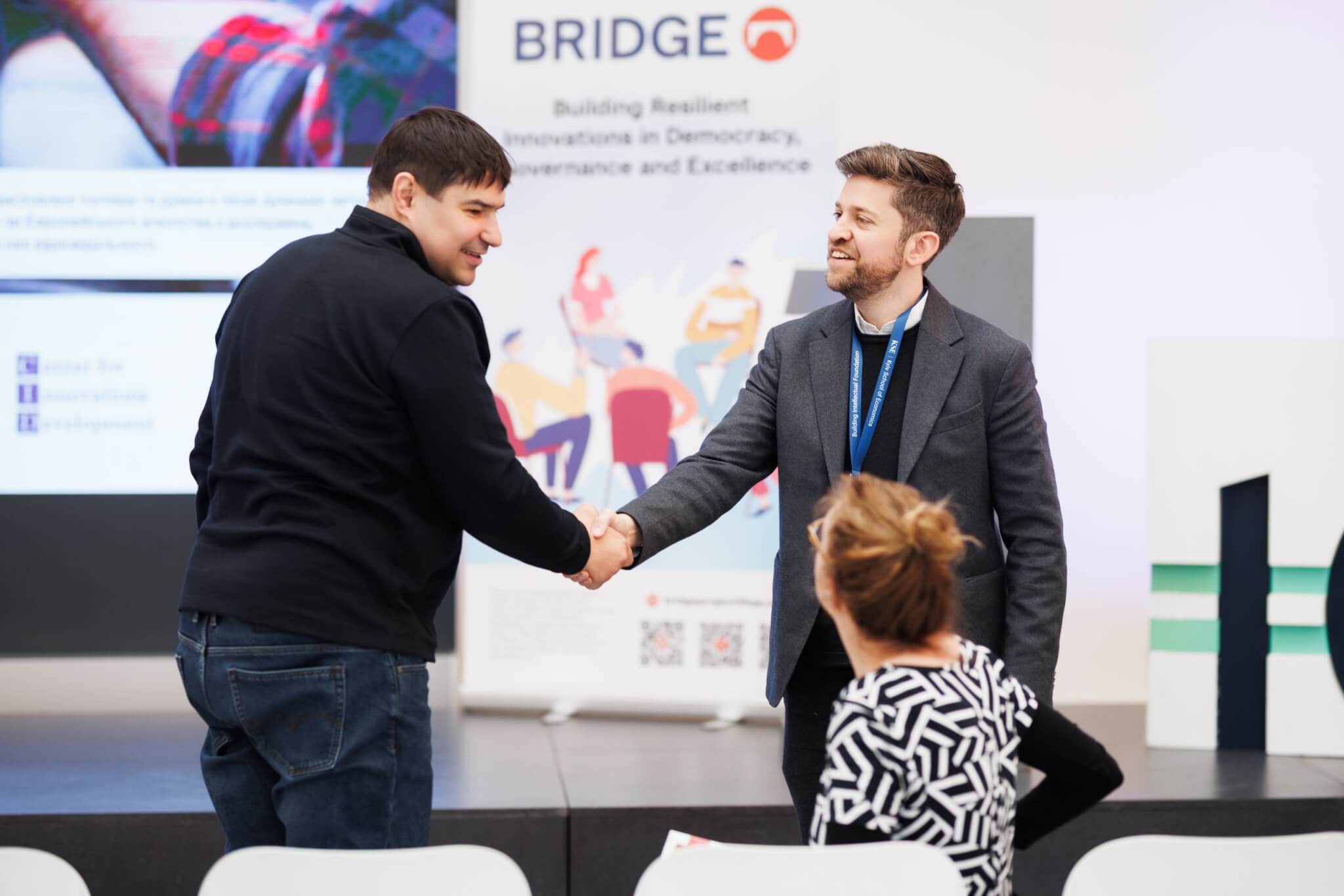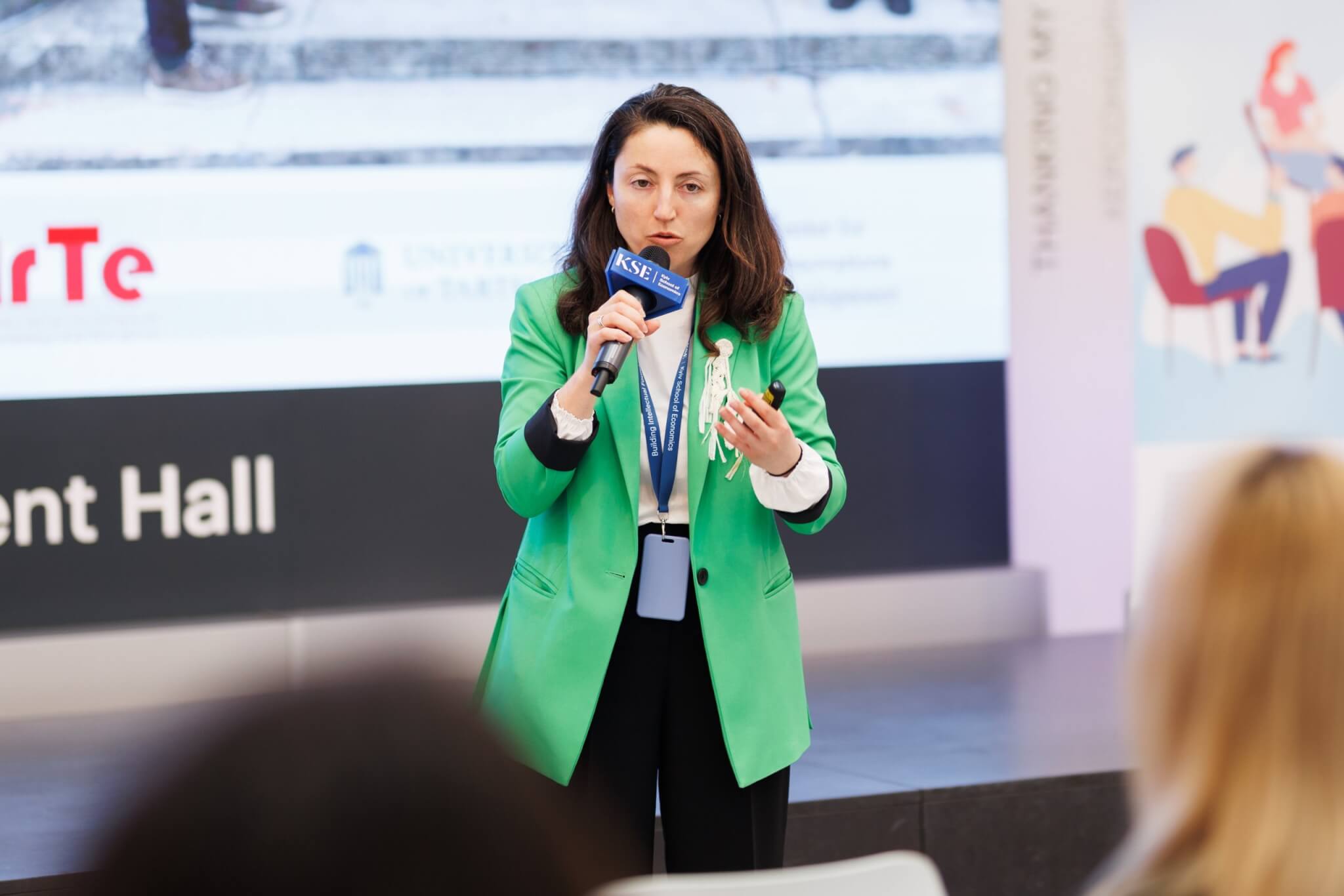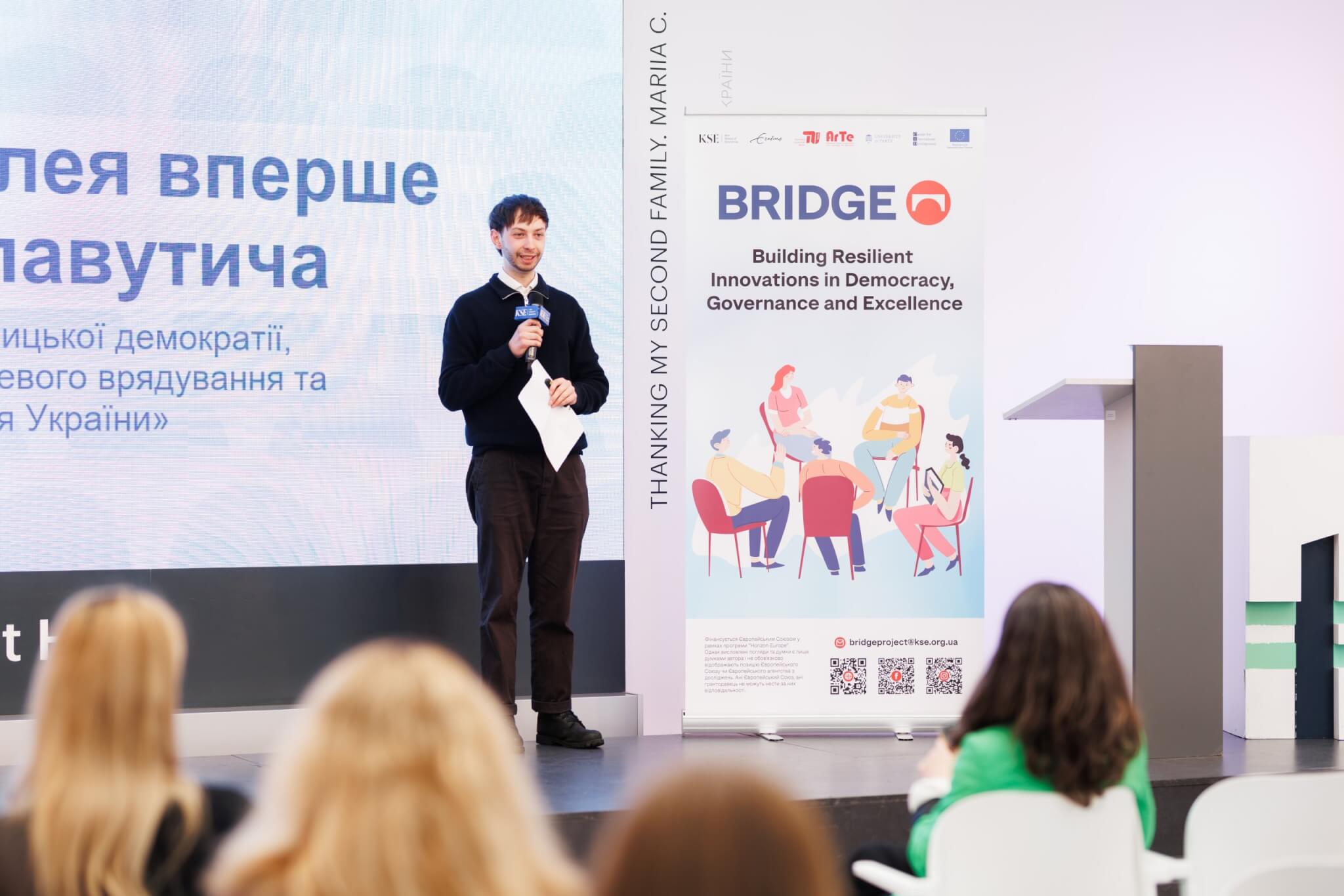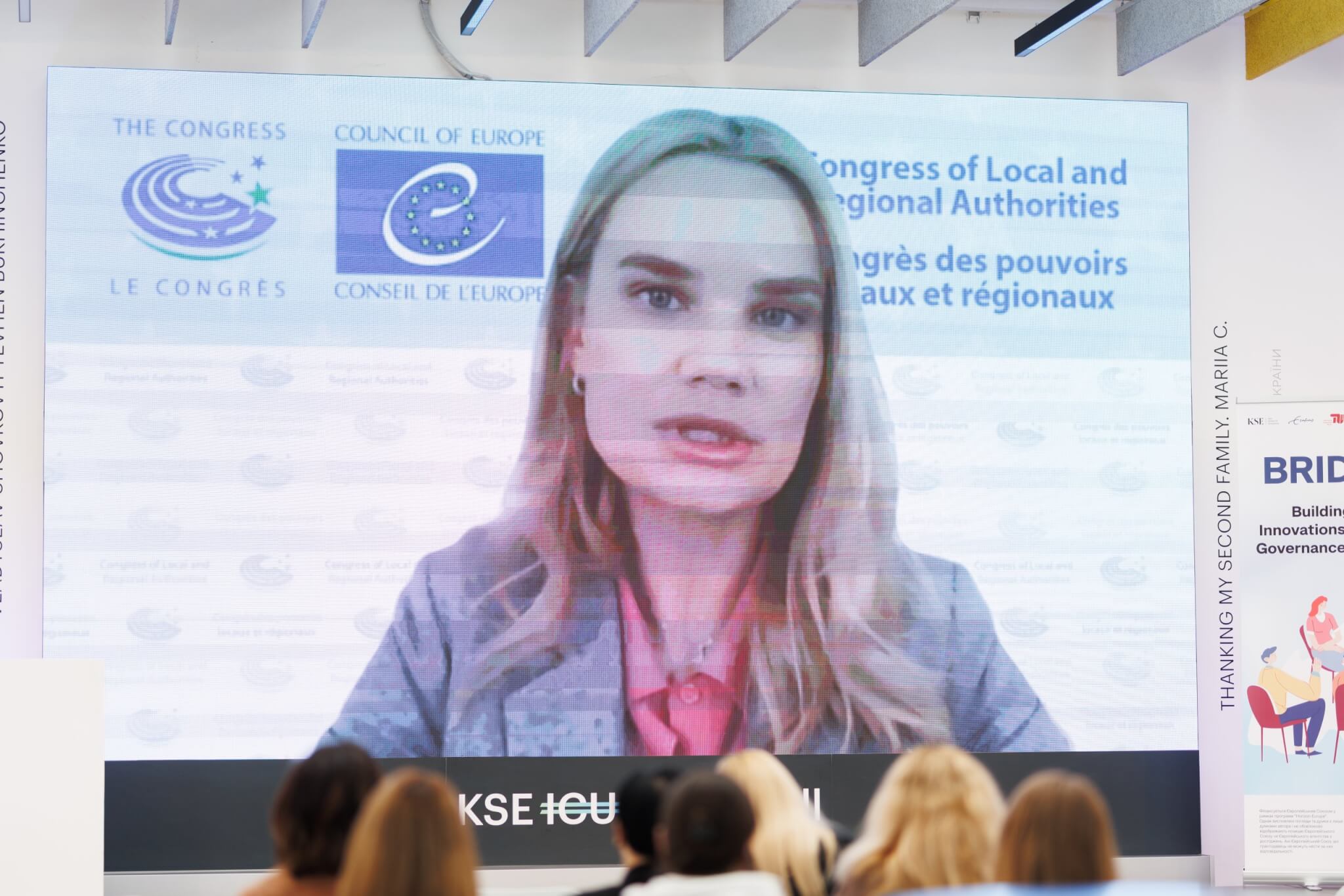- Kyiv School of Economics
- About the School
- News
- The BRIDGE Project Presents Citizens’ Assemblies – A Path Toward a New Culture of Decision-Making in Communities
The BRIDGE Project Presents Citizens’ Assemblies – A Path Toward a New Culture of Decision-Making in Communities
5 May 2025
In April, the BRIDGE project team held three informational events in Zviahel, Chernihiv, and Kyiv to introduce communities in the Zhytomyr, Chernihiv, and Kyiv regions to an innovative tool for civic engagement – citizens’ assemblies and to announce the opportunity to host a citizens’ assembly with the full support of the BRIDGE project. This marked the first stage of a competition aimed at selecting one community to hold a citizens’ assembly later this year.
These events created a space for dialogue among representatives of local self-government bodies, regional military administrations, the Association of Ukrainian Cities, the Association of Amalgamated Territorial Communities, and communities that have already gained successful experience in holding citizens’ assemblies.
“A citizens’ assembly is a tool that opens space for meaningful dialogue and genuine cooperation between citizens and authorities,” emphasized Daryna Sokolova, Manager of the Council of Europe’s program “Strengthening multi-level governance and local democracy to support Ukraine’s recovery.” “Its uniqueness lies in its open, safe, and constructive environment where every opinion matters. It fosters deep, well-reasoned discussions that lead to thoughtful and balanced recommendations truly reflecting the community’s views.”
The choice of location for the first event was symbolic. The first gathering took place in Zviahel – one of two cities where a citizens’ assembly was held for the first time in Ukraine in 2024 with the support of the Council of Europe. Iryna Hudz, Deputy Mayor of Zviahel, shared her experience:
“Citizens’ assemblies are important first and foremost for enabling the community to find compromises on key local issues. At the same time, assemblies help to make issues visible and give citizens an opportunity to work through them. They involve citizens from various backgrounds – different ages, education levels, and all parts of the community. During the discussion, people gain new knowledge and explore best practices. The most important thing local authorities need to understand when implementing an assembly is that the outcomes must be implemented. That stimulates civic engagement and makes communities more resilient.”
Slavutych, another pioneering city, was represented by Arina Starovoitova, Director of the Regional Development Agency. Her presentation in Chernihiv illustrated how assemblies can function not only as a conflict-resolution tool but also as a foundation for deeper change in governance culture:
“A citizens’ assembly is a chance to include residents in the decision making process. Random selection of participants allows voices to be heard that are usually left out. During the Slavutych assembly, scientists sat alongside craftswomen, retirees next to young people, and original settlers alongside newly arrived IDPs. This wasn’t just dialogue—it was collaborative work on key challenges that builds trust between the government and citizens. Participants of our assembly now better understand the work of politicians; they stepped out of their information bubbles and engaged with each other, becoming, in a sense, citizen experts in community`s waste management. This is something every community should try.”
The events were organized in partnership with Regional Military Administrations and supported by the Secretariat of the Cabinet of Ministers of Ukraine. At each event, representatives from the Technical University of Berlin – BRIDGE’s partner institution, Prof. Hans-Ludger Dienel and Dr. Kerstin Lueker, shared European experiences and conducted seminars on the foundations of deliberative democracy.
The BRIDGE project is implemented by the Kyiv School of Economics in cooperation with Erasmus University Rotterdam, the University of Tartu, and the Technical University of Berlin. It aims to combine the implementation of innovative democratic practices with their academic study and to strengthen the research capacity of the Kyiv School of Economics. Citizens’ assemblies are more than just a participation tool – they represent a new standard in community governance. The BRIDGE team is sincerely committed to expanding Ukraine’s experience and knowledge in this field, making this approach more accessible and understandable for all communities.
Additionally, Oleksandra Keudel, the BRIDGE project’s principal investigator, adds: “Ukraine’s experience in applying democratic tools, including citizens’ assemblies, during wartime and martial law is unique and will enrich global understanding of democratic resilience.”
The competition to host a citizens’ assembly is open until 19 May 2025, and by 3 June, one community will be selected by the BRIDGE team to implement the assembly.
This is a unique opportunity for a community not only to test a new form of participation but also to become an example for others. The selected community will become a partner in the research process, and the BRIDGE team will analyze how holding a citizens’ assembly influences trust, collective decision-making, and the creation of a new quality of democracy.
Organizers invite representatives of urban communities in Zhytomyr, Kyiv, and Chernihiv regions to submit an application and participate in the competition to host a citizens’ assembly.
Application link: https://forms.gle/vmDpoD6uyyUADg8m8
We also invite you to follow the project’s social media channels to stay updated on important events and announcements: Facebook | Instagram | LinkedIn | Website
Funded by the European Union. Views and opinions expressed are however those of the author only and do not necessarily reflect those of the European Union or European Research Executive Agency. Neither the European Union nor the granting authority can be held responsible for them.
Text prepared by Illia Tkachenko,
Research Coordinator of the BRIDGE Project

